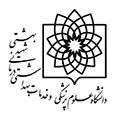چکیده:
امروزه دانشمندان در پس حصار تخصصگرایی در حال انباشت دانش هستند درحالیکه وفور دانش تکرشتهای لزوما به افزایش خرد و حکمت نمیانجامد و به زندگی پرثمر منجر نمیشود. از دانش میتوان سوءاستفاده کرد یا حتی عرضۀ نابجای آن میتواند به افراد ضرر برساند. راه حل مسائل پیچیدۀ اجتماعی، سیاسی، اقتصادی و اعتقادی امروز نه مبتنی بر انباشت دانش است، نه تکیه بر آموزههای دینی بدون توجه به پیشرفتهای علمی (1, 2)؛ آنچه امروز بدان نیاز داریم درک روابط بین زمینههای دانش است که از آن با عنوان دانش بینرشتهای یاد میشود. فهم درست ارتباط بین علوم پزشکی (طب) و علوم دینی (آموزههای اسلامی) نیازمند پژوهشهای بینرشتهای است.
Today, scholars are accumulating knowledge behind the fence or in the enclosure of specialization while the abundant knowledge in one single discipline does not necessarily lead to increased wisdom and a fruitful life. Knowledge can be abused and its improper distribution may even prove harmful. The solution to complicated social, political, economic, and religious issues today are neither based on accumulation of knowledge not dependent on dependent on the religious teachings irrespective of the scientific developments (1, 2). What we need is an understanding of the relationship between different fields of knowledge, which is referred to as interdisciplinary knowledge. A correct understanding of the relationship between the medical sciences (medicine) and religious sciences (Islamic teachings) necessitates interdisciplinary research.
Today, medical sciences have achieved the highest levels of health and have set individualistic, preventive, predictive, and participatory scopes based on nanotechnology, information technology, biotechnology and cognitive sciences for the year 2050 (3, 4). Nevertheless, due to its multidimensional nature, human health cannot be restrictively defined only within the framework of biological sciences as an animal. A dimension of health that covers the diseases common between human and animals can be more easily understood while human has other unknown dimensions since human body and soul are not separate and independent of each other. We can still focus on what Molla Sadra Shirazi stated four centuries ago with regard to time and the appearance of soul. It’s worth noting that in this philosophical pioneering field, one can find the signs of a knowledge referred to as psychosomatics (5) and raise the idea of relationship and connection between human health and Islamic teachings as an interdisciplinary field.
It is not easy, however, to delve into the relationship between human health and Islamic teachings. For example, if the Quran is put at the center of attention as a major source of religious studies, non-experimental human sciences will be put at the central circle close to the Quranic sciences. Medicine as an experimental human science shall be in the second circle and biology as a natural experimental science (developmental) lies

(پژوهیار,
,
,
)

